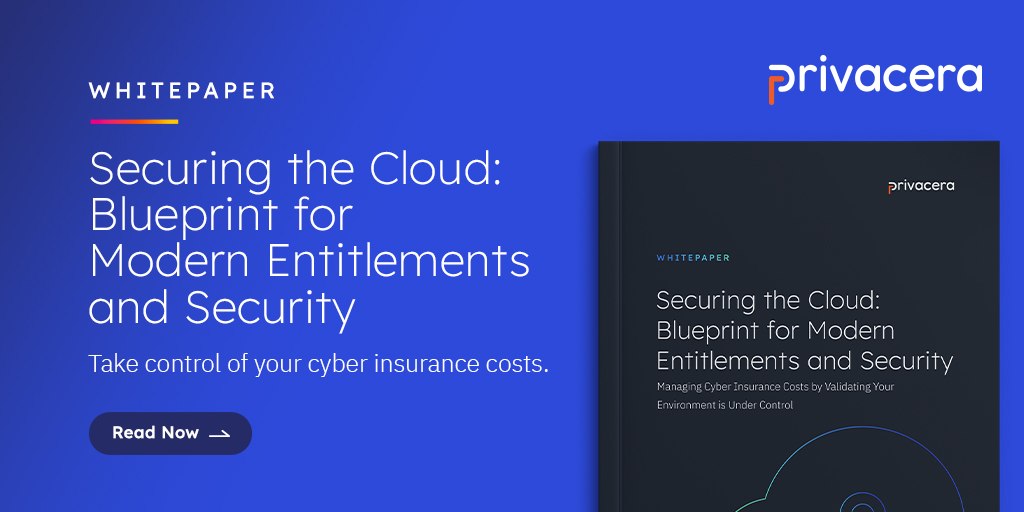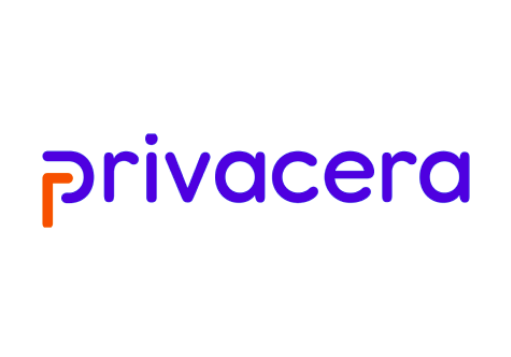Considering Immuta? Try Privacera
If you’re considering Immuta’s Data Security Platform, you should also look at the leading open standards-based option – Privacera.
Request a Demo
You’re looking for agile, secure data access with comprehensive privacy control baked in—across your cloud and data sources. The only secure, enterprise-grade, and future-proof way to achieve that is with a platform based on open standards.
That’s what you get with Privacera. Centralized security and control for analytics and GenAI initiatives, while avoiding vendor lock-in. Seamlessly integrate, evolve, and future-proof while upholding stringent compliance with internal and external mandates.
Privacera Data Security Platform
Privacera Data Security Platform helps data and security teams centrally manage access and privacy controls. Unlike other solutions like Immuta, Privacera natively protects the broadest coverage of structured and semi-structured data; does not impact query performance; and is built on open standards.
With proven scalability and expansive connectivity, it’s obvious why Fortune 500 companies in retail banking, healthcare, manufacturing, retail, media, and entertainment are choosing Privacera over Immuta.
Why Privacera?
Challenges with Immuta
Immuta Lacks Depth
Feature Comparison (Table)
Scenarios Comparison (Table)
Strength and Weakness
Choosing Ideal Product?
Privacera wins!
Considering Immuta? Try Privacera
Immuta and Privacera are both designed to enable data governance, security, and access management, but they cater to different needs and offer distinct capabilities. Just like Privacera, Immuta is a powerful platform specifically focused on data privacy and compliance. It helps organizations control who can access sensitive data and how that data is used without compromising privacy or violating compliance requirements. However, challenges arise when medium-to-large enterprises with large, diverse datasets require consistent data protection and governance across multiple platforms and environments.
Compared to Immuta, Privacera offers a broader approach to enterprise-wide data security, access governance, and compliance, extending across multiple cloud platforms and big data environments. It integrates tightly with data lakes, warehouses, and analytics tools to enforce security and compliance at an enterprise scale.
While Immuta makes a compelling case in managing fine-grained access controls and ensuring compliance at small-to-medium business, it can sometimes struggle with the complexity and scale of larger, heterogeneous data ecosystems. Privacera, with its ability to provide centralized governance across various platforms, addresses the challenge of larger enterprises by providing governance and security policies across the broader data landscape at scale.
Challenges with Immuta
Breadth of Coverage
Immuta offers real-time data access controls; it may not be ideal in multi-cloud environments due to limited integrations (6) and policy management complexities. In contrast, Privacera excels by enforcing consistent policies across multiple cloud providers and storage systems (50+), ensuring seamless compliance. Its broader integrations and centralized management make it a more effective choice for maintaining access control and security across diverse data platforms.
Integration with Existing Systems
Depending on the tech stack an organization already has in place, Immuta might face integration challenges. For instance, organizations using legacy systems may encounter compatibility issues, or the integration could require significant custom development. Additionally, data systems may not always have the same metadata structure, and Immuta might struggle to align with certain custom setups. Privacera not only offers seamless integration with a wide range of databases, data lakes, cloud storage platforms, and other tools, but its extensive native integrations and flexible open-source architecture allow it to easily align with both modern and legacy systems without the need for significant custom development.
Dynamic Policy Updates
When a user’s role or attributes change, Immuta dynamically adjusts their data access. However, this can introduce latency or errors if the recalculation of access policies isn’t properly synchronized. For example, if a user transitions between departments, it might take some time for Immuta to update their access, potentially creating a gap in access control. Unlike Immuta, Privacera allows its customer to control the frequency of the synchronization – resulting in frequent updates.
Dynamic Data updates
When new data is introduced or modified, ensuring that existing access control policies are applied uniformly across all data sources can be a challenge in Immuta. If there is any discrepancy between how different platforms handle policy enforcement, it could lead to inconsistent data access or gaps in security. Privacera, with its proprietary “Birth Right Access”, instantly enables appropriate policy application the moment new data is introduced or modified.
Scalability
In large, complex data environments with millions of rows and users, Immuta might struggle to maintain performance if too many policies need to be evaluated or enforced simultaneously. This is because when users request access to sensitive data, Immuta must check access policies and enforce data masking, which takes additional time. The more complicated the access controls and masking rules, the higher the chance of performance degradation. With Privacera, we push the policies in the native data service – hence, no new level of contention is introduced and queries are performed at native speed.
Structured and Unstructured Data Access
Immuta’s discovery, secure or access capabilities mainly supports RDBMS/ SQL style access patterns while Privacera supports structured and unstructured data. Privacera manages and automates the entire data security lifecycle from finding, classifying, and securing data to continuous monitoring and auditing.
AI Governance Options
Immuta leverages AI-driven dynamic data access controls to automatically adjust permissions based on data context, user behavior, and compliance requirements. Its solution is only designed to streamline access management, ensuring data privacy and security in real-time across various platforms.
However, Privacera offers a more comprehensive approach with AI through Trust3 AI*, which not only automates policy enforcement but also provides a unified governance framework that extends across multiple cloud platforms, ensuring consistent security and compliance at scale.
*Note: Trust3 AI is a separate product offered by Privacera
Examples where Immuta lacks the sophistication required for real-world enterprise scenarios
Combining AND/OR Conditions
In Immuta, Data Access Policies do not support complex conditional logic that combines both AND and OR in a single statement. For example, a policy like Country = US AND (Data Usage = CI OR Data Usage = CCI) cannot be expressed. This limitation makes it difficult to define nuanced access rules that reflect real-world data governance needs.
By contrast, Privacera supports advanced logical expressions, allowing administrators to combine AND, OR, and nested conditions freely. This enables more precise and flexible policy enforcement across data assets.
Negative Conditions
Immuta lacks support for negative conditions, meaning you cannot define rules that explicitly exclude certain values. For instance, a policy like Support Line ≠ “Guarantee” is not supported, which limits the ability to write exclusion-based access controls.
Privacera, on the other hand, supports negative conditions out-of-the-box. This allows for more complete policy coverage, especially when you want to restrict access based on the absence of specific attributes or values.
Deny Policies
In Immuta, you cannot create explicit deny policies that block access under specific conditions. For example, it’s not possible to write a policy that says, “Deny access to data tagged as ‘M&A’.” This makes it harder to implement “zero-trust” or risk-based access strategies.
Privacera allows the definition of deny policies, enabling organizations to enforce stricter access control by explicitly blocking users from accessing certain datasets—even if other policies would otherwise allow access.
Non-permissible SORT Code Restrictions
Due to the limitations above—lack of complex logic, no negative conditions, and absence of deny rules—Immuta cannot enforce restrictions like non-permissible SORT codes. This weakens policy enforcement in regulated environments where exclusions are critical.
Privacera, with its support for complex expressions and negative logic, is well-suited to enforce such restrictions, providing a more robust framework for regulatory compliance.
Nested Conditions
Immuta does not support nested conditions, which are commonly used in SQL-based policy definitions to reflect multi-layered logic. This makes it difficult to model access control scenarios that involve multiple dependent criteria.
Privacera supports nested policy conditions, making it easier to express and manage complex governance rules that mirror real-world data scenarios more accurately.
Key Feature Comparison between Privacera and Immuta
| Capability | Immuta | Privacera |
|---|---|---|
| Compliance | Strong focus on privacy compliance with dynamic policy enforcement. | Supports GDPR, HIPAA, CCPA, and other global standards. |
| Audit | Immuta’s UAM simplifies data access auditing and management by providing consistent audit log structure, metadata, and search/filtering capabilities. (NOTE: Limited to 6 sources) | Offers detailed audit trails and reporting across data sources by maintaining a comprehensive audit log of all data access events, enabling users to track who accessed data, when, and under what protections (e.g., clear, masked, encrypted) were in place. (NOTE: provides audit and reporting for both modern and legacy environments) |
| Multi-Cloud Support | Limited support for multi-platform hybrid data environments | Provides governance for hybrid/multi-cloud setups, including AWS, Azure, GCP, and on-premises systems by integrating seamlessly across data lakes, warehouses, and tools. |
| Scalability | Scale for mid-to-large analytics deployments primarily in cloud-based setups. | Highly scalable for large enterprises across regions. |
| Integration | Immuta’s integration may face challenges with legacy systems, requiring custom development, and inconsistencies in metadata structures can complicate alignment with custom setups. | Seamlessly integrates with databases, data lakes, and cloud storage, leveraging native integrations and an open-source architecture to support both modern and legacy systems with minimal custom development. |
| Data Security | Focuses on real-time dynamic access with strong pseudonymization and secure query execution. | Includes encryption, tokenization, masking, and row-/column-level security. |
| Dynamic Policy Updates | When a user’s role changes, Immuta updates access dynamically, but delays or errors may occur if policy recalculations aren’t synchronized, creating temporary access gaps. | Privacera allows its customer to control the frequency of the synchronization – resulting in frequent updates. |
| Dynamic Data Updates | Ensuring consistent policy enforcement across all data sources can be challenging when new data is added or modified. Discrepancies between platforms may result in inconsistent access or security gaps. | Privacera, with its proprietary “Birth Right Access”, instantly enables appropriate policy application the moment new data is introduced or modified. |
| Performance | In large, complex data environments with millions of rows and users, Immuta might struggle to maintain performance if too many policies need to be evaluated or enforced simultaneously. This is because when users request access to sensitive data, Immuta must check access policies and enforce data masking, which takes additional time. The more complicated the access controls and masking rules, the higher the chance of performance degradation. | With Privacera, we push the policies in the native data service – hence, no new level of contention is introduced and queries are performed at native speed. |
| Managing at Enterprise-Scale | As organizations grow and their data access requirements become more granular, they may need to define a large number of policies for various data sources, roles, attributes, and users. Managing and maintaining these policies can become increasingly complex in Immuta. (See the previous section) | Privacera allows businesses to extend these controls across the entire organization, ensuring that the right policies are applied without compromising performance because Privacera provides a centralized framework to enforce access governance for complex configurations with minimal complexity. (See the previous section) |
| Query Performance | Applying dynamic policies at query time can impact the performance of data queries. For example, if a large dataset is subject to complex row-level redaction or masking policies, the queries can become slower due to the additional processing required to enforce these policies | Privacera pushes the policies in the native data service – hence, no new level of contention is introduced and queries are performed at native speed. |
| Flexibility | New objects can be hard to detect. For example, every time a new table is created from the data warehouse, the data architect has to enter all the connection details again, which is supposed to be learned by Immuta already. This adds work not only slows down the adoption, but also is prone to human error. | Privacera can automatically detect new objects and metadata changes without additional configuration. |
| Policy Creation | Primarily emphasizes automated ABAC with intuitive policy templates for analytics teams. | Combines role-based (RBAC) and attribute-based (ABAC) controls for robust governance. |
| Integration | Deep integration with analytics tools like Spark and BI platforms. Narrower range of connectors compared to Privacera. Only supports Redshift, Snowflake, Bigquery, Starburst,Unity Catalog, S3 | Supports over 50+ integrations, including Databricks, Snowflake, Hadoop, and Hive. Open API architecture makes it agnostic to data engines. |
| Usability | Simplified interface for data scientists and analytics engineers. | Comprehensive with detailed functionality but may have a steeper learning curve for smaller teams. |
| Vendor Neutrality | Proprietary solution tied to Immuta’s architecture, with less flexibility for open-system users. | Fully open-source foundation, reducing vendor lock-in risk. |
| AI Governance Options | Immuta leverages AI-driven dynamic data access controls to automatically adjust permissions based on data context, user behavior, and compliance requirements. Its solution is only designed to streamline access management, ensuring data privacy and security in real-time across various platforms | Privacera offers a more comprehensive approach with AI through Trust3 AI*, which not only automates policy enforcement but also provides a unified governance framework that extends across multiple cloud platforms, ensuring consistent security and compliance at scale. |
*Note: Trust3 AI is a separate product offered by Privacera
Key Real-world Enterprise Scenarios Comparison between Privacera and Immuta
| Capability | Immuta | Privacera |
|---|---|---|
| Combining AND/OR Conditions | Does not support combining AND and OR in a single policy statement. Example: Country = US AND (State = CALIFORNIA OR NEW YORK) is not possible. | Supports advanced logical expressions including AND, OR, and nested logic. |
| Negative Conditions | Cannot define exclusion-based rules like, “Column 2” DOES NOT EQUAL “Social Security Number”. | Supports negative conditions, allowing more complete and restrictive access control. |
| Deny Policies | Cannot define explicit deny rules like “Deny access to data tagged as ‘M&A’. | Supports deny policies for enforcing zero-trust and risk-based access strategies. |
| SORT Code Restrictions | Cannot enforce non-permissible SORT code restrictions due to the above limitations. | Well-suited to handle such rules through advanced logic and deny conditions. |
| Nested Conditions | Does not support nested (multi-level) conditions often used in SQL-style logic. | Supports nested conditions for more flexible, real-world policy modeling. |
Strengths and Weaknesses of both Privacera and Immuta
Privacera Strengths
- Breadth of Governance: Suited for enterprises managing complex, multi-cloud, or hybrid data ecosystems.
- Scalability: Handles large-scale governance needs with advanced controls and open architecture.
- Policy Flexibility: Combines RBAC and ABAC, making it ideal for organizations with diverse governance requirements.
- Security: Comprehensive encryption, masking, and fine-grained access control mechanisms.
- Integration Ecosystem: Works seamlessly across varied tools, including Snowflake, Databricks, and more.
- Rich Policy Logic: Supports advanced AND/OR combinations, nested conditions, and negative/deny rules for precise access control.
Privacera Weaknesses
- Complexity for Small Setups: The platform may seem overly robust for organizations with simple governance or single-cloud needs, leading to longer adoption timelines.
Immuta Strengths
- Ease of Use: Simplified policy creation and enforcement tailored for data scientists and analytics teams.
- Dynamic Privacy Controls: Automatically enforces privacy rules, supporting modern ABAC frameworks.
- Privacy Compliance: Focuses on simplified rule creation for privacy-focused workflows, particularly for analytics use cases.
Immuta Weaknesses
- Limited Multi-Cloud Support: Best suited for centralized analytics rather than hybrid ecosystems.
- Reduced Integration Breadth: Fewer connectors compared to Privacera, limiting flexibility in complex environments.
- Limited Policy Flexibility: Cannot handle combined logic (AND/OR), negative conditions, or nested rules, restricting real-world use cases.
How to Choose Between Privacera and Immuta?
Choose Privacera If:
- You operate in a multi-cloud or hybrid environment and require consistent governance across all platforms.
- Your organization demands enterprise-wide scalability with granular, cross-functional policy enforcement.
- You require advanced encryption, masking, and detailed auditing with extensive integration options.
- Avoiding vendor lock-in through open architecture is critical.
- Privacera enables fine-grained, compliant access control with advanced policy logic (combined logic (AND/OR, negative conditions, or nested rules) across modern data platforms.
Choose Immuta If:
- You need a platform focused on data privacy management and simplifying policy creation.
- The use case targets analytics-heavy workflows with privacy emphasis rather than diverse governance needs.
- Your setup involves fewer cloud providers or a centralized data workflow system (e.g., Databricks, Spark).
- A lightweight, intuitive solution is preferable for faster onboarding.
See how Privacera outshines Immuta
Privacera is the better choice for organizations requiring extensive data governance with broad integrations, multi-cloud support, and robust security measures. It excels in scalability and adaptability for enterprises with complex requirements.
Immuta, on the other hand, is ideally suited for organizations prioritizing data privacy management and analytics-driven workflows. Its simplicity and dynamic policy creation cater to teams.
It’s no surprise Fortune 500 leaders in banking, healthcare, manufacturing, retail, and media choose Privacera for its scalability and broad connectivity.




